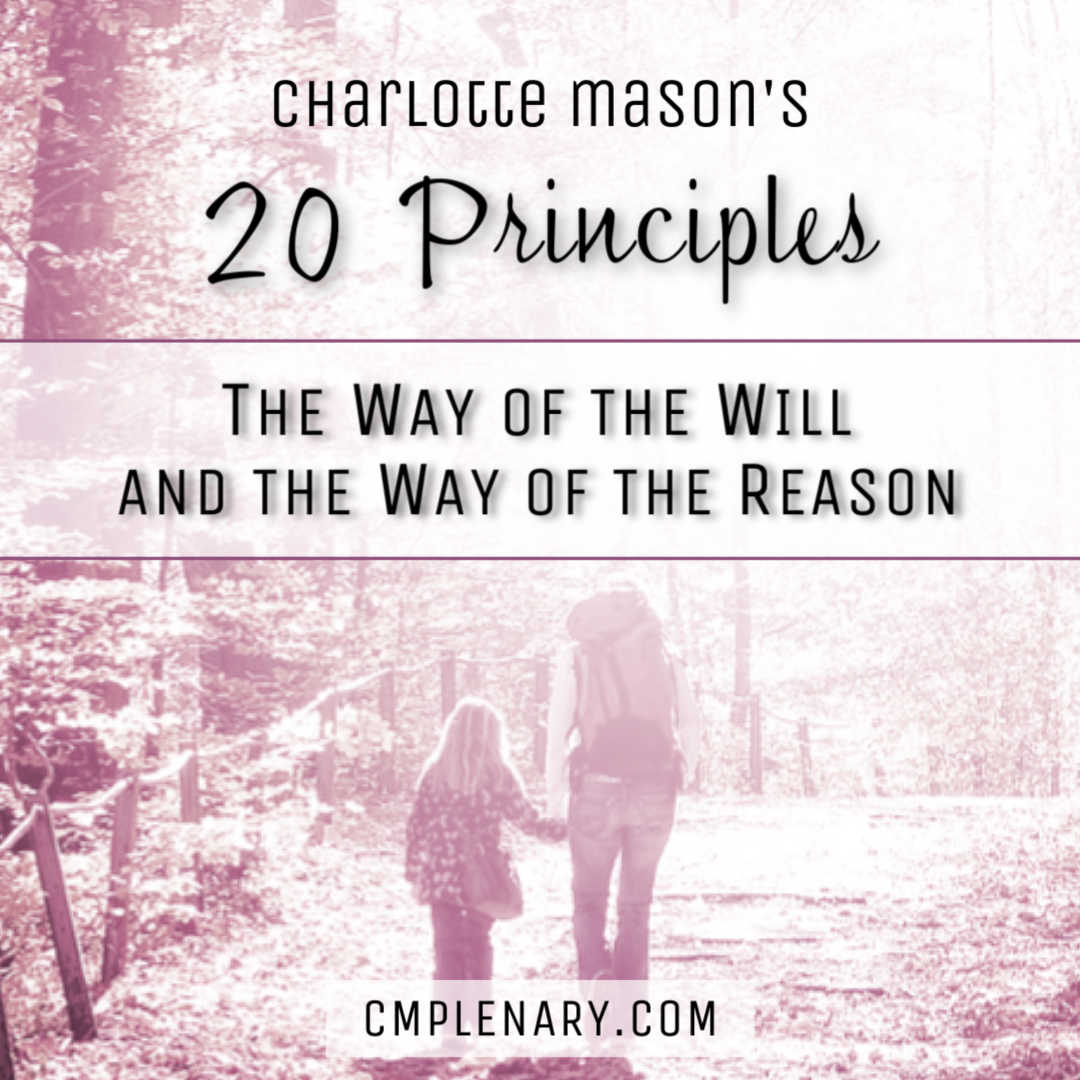WILL AND REASON IN A CHARLOTTE MASON EDUCATION
Charlotte Mason's Principles #16 - #19

PRINCIPLE #16
There are two guides to moral and intellectual self-management to offer to children, which we may call “the way of the will” and “the way of the reason.”
PRINCIPLE #17
The way of the will: Children should be taught
- (a) to distinguish between “I want” and “I will.”
- (b) That the way to will effectively is to tum our thoughts from that which we desire but do not will.
- (c) That the best way to turn our thoughts is to think of or do some quite different thing, entertaining or interesting.
- (d) That after a little rest in this way, the will returns to its work with new vigor.
(This adjunct of the will is familiar to us as diversion, whose office it is to ease us for a time from will effort, that we may ‘will’ again with added power. The use of suggestion as an aid to the will is to be deprecated, as tending to stultify and stereotype character. It would seem that spontaneity is a condition of development, and that human nature needs the discipline of failure as well as of success.)
PRINCIPLE #18
The way of reason: We teach children, too, not to “lean (too confidently) to their own understanding”; because the function of reason is to give logical demonstration
- (a) of mathematical truth,
- (b) of an initial idea, accepted by the will.
In the former case, reason is, practically, an infallible guide, but in the latter, it is not always a safe one; for, whether that idea be right or wrong, reason will confirm it by irrefragable proofs.
PRINCIPLE #19
Therefore, children should be taught, as they become mature enough to understand such teaching, that the chief responsibility which rests on them as persons is the acceptance or rejection of ideas.
To help them in this choice we give them principles of conduct, and a wide range of the knowledge fitted to them. These principles should save children from some of the loose thinking and heedless action which cause most of us to live at a lower level than we need.
Educating the Will and Reason: A Paradigm Shift
This set of principles deals with what Charlotte calls “The Way of the Will” and “The Way of the Reason.”
These ideas might seem confusing at first, but there are three parts to Charlotte’s over-arching ideas about Will and Reason. We’ll go through each one and break it down into bite-sized pieces.
Also, just a heads-up: the way Charlotte looks at these ideas is what one might call a “paradigm shift.” You will have a different view of “will” and “reason” once you understand these Principles.
Watch the Video for these Principles
FREE 20 Principles STUDY GUIDE
You can download the two chapters for these Principles in the FREE STUDY GUIDE below, which also includes study questions.
DOWNLOAD YOUR FREE
20 PRINCIPLES STUDY GUIDE
Why are "The Will" and "The Reason" important in a Charlotte Mason Education?
Read the inluded chapters and watch the video, then join us over in The Plenary Facebook Group! Tell me what you think about these 4 Principles!
How do we educate “The WIll” and “The Reason” in our children?
Why is it important to change the way we think of “The Will” and how does “Reason” play a part? And what kind of paradigm shift do we need to make in our own lives to accomplish it?
RESOURCES MENTIONED IN THIS VIDEO
Book: Teacher & Child by Haim G. Ginott
Book: Volume 6: A Philosophy of Education: Annotated Edition by Charlotte Mason
0 Comments for “The Way of the Will and the Way of the Reason: Charlotte Mason’s Principles 16, 17, 18, and 19”